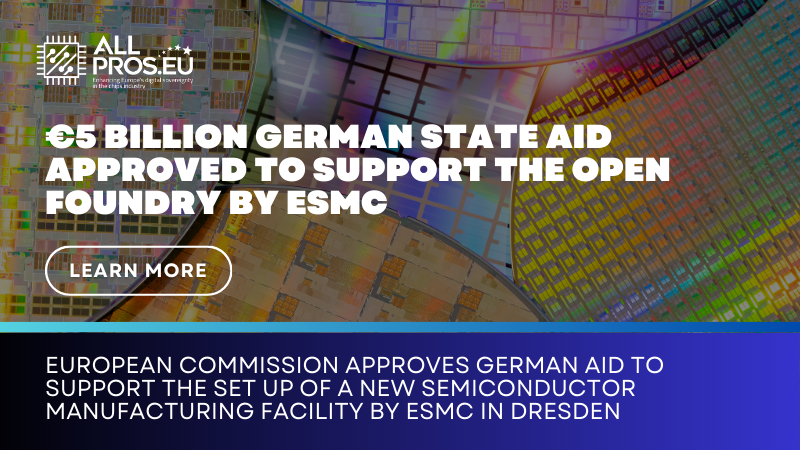
EC approves German aid to support the set up of a new semiconductor manufacturing facility by ESMC
On 20 August 2024, the European Commission has approved the German aid measure to support the set up of a first-of-a-kind semiconductor manufacturing facility in Dresden by ESMC, which will reinforce Europe's production and innovation capabilities.
Following an assessment of the German aid in relation to the EU State aid rules under the Art. 107(3)(c) of the Treaty on the Functioning of the European Union (TFEU), the European Commission has approved the €5 billion German State aid supporting the European Semiconductor Manufacturing Company (ESMC) in the construction of the manufacturing site in Dresden.
ESMC is a joint venture between TSMC, Bosch, Infineon and NXP and the objective is to strengthen the European security of supply, while boosting the delivery of high-performance chips with reduced total power consumption. The chips will be based on 300mm silicon wafers with node sizes covering 28/22nm and 16/12nm, using field-effect transistor (‘FinFET') technology, thereby offering better performance and meeting European customers’ needs.
Furthermore, the innovation behind this new facility lies in its open manufacturing operation. This "open foundry" model enables the four companies and other customers to place orders for the production of specific chips.
It is envisaged that the facility will be operational by 2029 and it is expected to produce 480,000 silicon wafers per year. The site will also support knowledge exchange and research in the European semiconductor sector as it will provide special access to SMEs and universities. This, in turn, is set to incentivise innovation and talent development in the industry.
A new milestone is achieved with the launch of this new facility bringing key semiconductor technologies at the heart of Europe. The site will also act as an additional safety net in case of crisis, as ESMC has committed to comply with priority rated orders as defined by the Chips Act.
Read more in the press release by the European Commission.